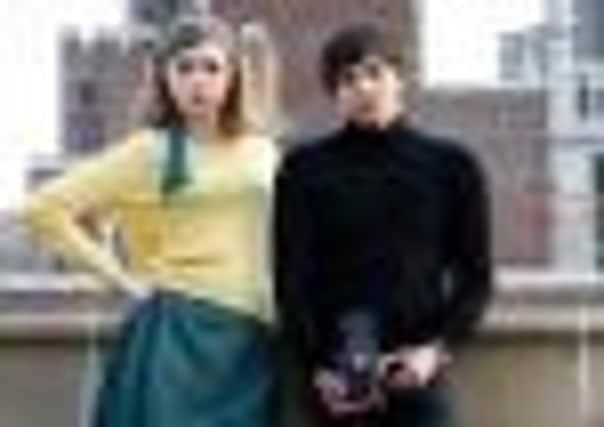TV reviews: We’ll Take Manhattan | Birdsong | How the Brits Rocked America


The second time was in the company of this era’s Bailey – Rankin – and when my photographer arrived to snap them together, self-consciously overladen with equipment, they teased him for not being able to afford an assistant. Still, Bailey could take a photie. Captured a generation on the rise, so he did.
Yes, but did he actually invent the Swinging Sixties? This was kind of the premise of We’ll Take Manhattan, the latest in BBC4’s dramatisations of key moments in pop-culture history. The year is 1962, Bailey gets a job on Vogue, whisks Jean Shrimpton off to New York, shoots her through a chain-link fence, and as a result John Lennon sings I Wanna Hold Your Hand like he really means “grab your arse” and Harold Wilson invests his big showstopper – the one about “The white heat of this revolution” – with extra sex. And because Shrimpton was a “jumped-up convent girl” and a “snub-nosed parvenu”, she and Bailey tore down the old class barriers as well.
Advertisement
Hide AdKaren Gillan played the Shrimp in her first big post-Doctor Who role and made a pretty good job of it. As photographed by Bailey, Shrimpton always looked like a woman, although that was the 1960s for you: even when you were definingly young you seemed older. Gillan still looks like a girl and may do for quite some time, at least until she gets the hang of those coltish legs, respectively the fourth and fifth wonders of the modern televisual age (although she should worry). Aneurin Barnard made Bailey seem very boyish and, given that the man himself was quite grizzled when I met him, he must have been delighted with this portrayal.
Perhaps because of their youth, the love story was a bit clunky. No matter, we were only ever a couple of minutes away from an epochal utterance (“There’s a new world coming. People will be applauded because they’re beautiful, not because of who their daddy was”). Bless, BBC4, it tries really hard with these dramas but simply doesn’t have the budgets. This one was essentially a three-hander: photographer, his model-muse and Vogue’s posh, titled fashion editor, played by a show-stealing Helen McCrory. The plot (script by John McKay) revolved round a single photoshoot. What drama there was came from a series of hissy fits: by Bailey, the Shrimp and the “superannuated Edwardian battleship”. All of this had the effect of minimising the impact of Bailey’s images, even though the script did its best to enlarge their importance. What we were left with was a bit of frothy fun but ultimately a Cinderella story.
There was no problem with the love scenes in Birdsong. Sebastian Faulks’ novel of love and war, when it was better-read on trains than the menus offering “signature bacon toasties”, and was destined for the big-screen treatment, featuring some big stars. It’s now turned up on TV but this adaptation by Abi Morgan (concluding tonight) doesn’t seem like a consolation prize. Although the goggle-box doesn’t have the panorama to do war horrible justice, it can usually depict life in the trenches with grim efficiency.
The hero, Stephen Wraysford, is a First World War lieutenant, himself grimly efficient. He doesn’t say much at the best of times but had cause to reproach a soldier for falling asleep on sentry-duty. “You’re head’s here,” went his excuse, “but your heart’s always somewhere else.” That’s Wraysford, too.
The action constantly jumps from wartime to the agonising bliss of his life before: a summer spent with a wealthy French family not far from the trenches, when he fell in love with the younger wife of a bullying factory-owner. Wraysford is pretty silent in these scenes, too. Eddie Redmayne, who plays him, has to display pent-up passion with only longing eyes and hard unkissed lips and does it brilliantly. Normally I hate this kind of acting because it invariably ends up mannered, but Clémence Poésy as the wife avoids the pitfall, too. And finally they kissed. Blimey.
More pent-up passion in How the Brits Rocked America which began with the Beatles touching down in New York in 1964 and a spontaneous outpouring. Recalled veteran US broadcaster Larry David: “We weren’t expecting to see women express themselves emotionally, to be showing themselves as frenetic, hysterical, sexual.”
Advertisement
Hide AdOf course, David Bailey had been there two years before. Discovered the Big Apple, in fact.
We’ll Take Manhattan, BBC4, Thursday 9pm
Birdsong, BBC1, Sunday 9pm
How the Brits Rocked America, BBC4, Friday 9pm